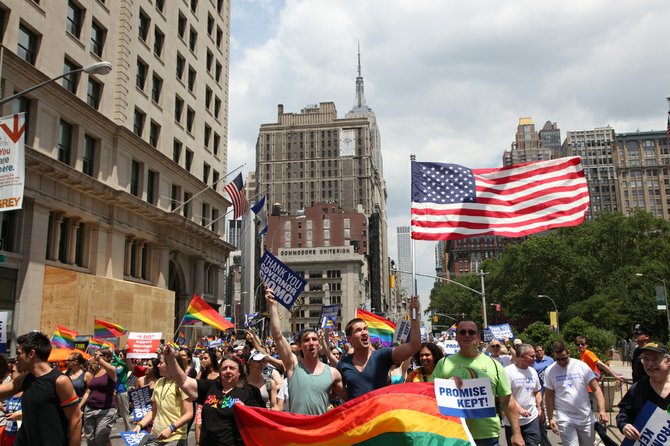Some LGBTQ activists believe the U.S. Supreme Court’s recent decision on marriage equality opens the door to making gay people a “protected class” under federal law. Photo by Courtesy Flickr/Kargaltsev
Two recent U.S. Supreme Court decisions validating same-sex unions may have a wider effect in Mississippi and nationwide than previously thought.
In one case, which challenged the federal Defense of Marriage of Act, the court ruled that same-sex couples are entitled to receive federal benefits. In the other, the court declined to hear a case out of California, where a ballot initiative attempted to make same-sex marriage illegal through a ballot referendum after the state's Supreme Court found such discrimination unconstitutional in 2008.
As a result of the DOMA case, federal benefits will automatically go to couples in states that have already legalized same-sex marriage. The rulings do not overturn laws in states that have explicit prohibitions against same-sex marriages and civil unions. Among those states is Mississippi, which passed an amendment in 2004 that states "marriage may take place and may be valid under the laws of this state only between a man and a woman."
"Any Mississippi resident validly married in another state must be treated as a heterosexual couple for all purposes of federal law," explained Matt Steffey, constitutional law professor at Mississippi College School of Law.
But things get tricky from there. Bear Atwood, legal director for the American Civil Liberties Union of Mississippi, said the federal government defines marriage differently depending on the program. In some cases, the feds define marriage based on where the marriage is filed; in other cases, it's where the marriage is domiciled.
For Mississippi, where same-sex marriage is illegal, some federal benefits could extend to a same-sex couple living in the Magnolia State who were married in another state where same-sex marriage is legal. But it is possible that if a federal program defines a marriage based on where it is domiciled, a same-sex couple residing in Mississippi may not receive those benefits, Atwood said.
The DOMA decision was 5-4, with Justice Anthony M. Kennedy writing the majority opinion that the four left-leaning justices--Ruth Bader Ginsburg, Stephen Breyer, Sonia Sotomayor and Elena Kagan--joined.
"The federal statute is invalid, for no legitimate purpose overcomes the purpose and effect to disparage and injure those whom the State, by its marriage laws, sought to protect in personhood and dignity," Kennedy wrote. "By seeking to displace this protection and treating those persons as living in marriages less respected than others, the federal statute is in violation of the Fifth Amendment."
Chief Justice John G. Roberts Jr. was in the minority, as were Justices Antonin Scalia, Clarence Thomas and Samuel A. Alito Jr. President Bill Clinton signed DOMA in 1996, but publicly repudiated the law earlier this year.
Perhaps a bigger and more significant part of the DOMA case is whether the ruling elevated sexual orientation to protected-class status. Federal law explicitly protects certain racial, ethnic, sex and religious minority groups that have experienced historic discrimination. Sexual orientation is not, but LGBTQ advocates wonder if Kennedy's opinion elevates sexual orientation to quasi-protected status.
"The Constitution's guarantee of equality 'must at the very least mean that a bare congressional desire to harm a politically unpopular group cannot' justify disparate treatment of that group," Kennedy wrote in his ruling.
Steffey said it would be a misreading of the opinion to say the DOMA ruling raised sexual orientation to a protected class; however, Atwood believes the decision could open the door for legal challenges to laws that discriminate on the basis of sexual orientation in the future.
"It's a big deal," Atwood said.



Comments
Use the comment form below to begin a discussion about this content.